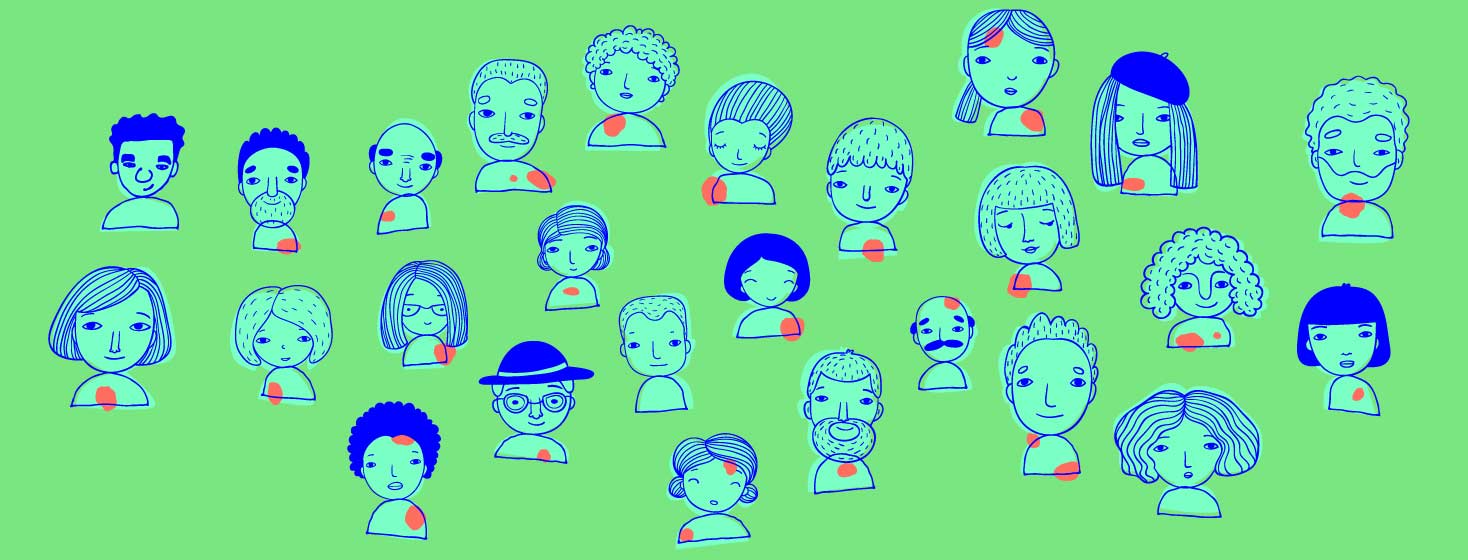Do You Accept or Control Your Eczema?
My conversations with eczema patients mostly include my personal experience of having eliminated most of my symptoms from diet change. I have become an advocate of my ‘success story’ with the intention to help others achieve a better quality of life. But after 7 years, I have learned a story of perspective and I want to share with you today.
My personal ‘success story’
I was diagnosed with eczema at 6. I’ve been through the typical journey of western medicine of oral and topical steroid therapy, antibiotics, so too traditional Chinese medicine of long-term bitter herbal teas. And of course, I’ve rotated through different physicians and skincare brands.
Recovery through dietary changes?
As I grew up losing sleep, embarrassed in public, and frustrated at my condition where even money cannot fix, I resorted to and experimented with everything possible. In 2013, I read anecdotal blog articles of patients recovering through diet change.
Approaches to dietary changes
There were diverse approaches:
- Raw food diet
- Fruit fasting
- Water fasting
- Various elimination diets
Ultimately, I tried basically everything and ended up with a highly restrictive diet for three months.
By the end of my high school summer break in August 2013, I had better skin than someone without eczema, and my pouch of steroid creams were no longer needed. Since then I eat and live a generally healthy lifestyle and eczema has left my life.
Complexities of life with eczema
Since 2013, I have lived without eczema in my daily life. I don’t worry about sweating after a basketball game with friends. I don’t worry about revealing my skin in public because I have little to no blemishes and rashes anymore. I also don’t face the anxiety of stepping into the shower with the thought of water entering my broken wounds.
My post-recovery passion is to blog and share about this journey to help others achieve the same. In my university years, I come across student peers with eczema. I generally share my ‘success story’ and try to fit into their lives.
‘I am happy with my eczema right now’
One friend in particular shared her story of lifelong eczema and at her worst, fell into mental distress and depression. She understands the variety and impact of lifestyle factors (e.g. stress, diet, sleep, etc.) but unlike me, she does not pursue and optimize for a strict dietary approach to eliminate eczema.
‘I am happy with my eczema right now,’ she said, as I assumed a recovery destination for her and for all patients.
Content with different skin states
By symptom, she has visible eczema. By my experience of dietary change, there is room for improvement. But does she have to follow my footsteps into my expectation of the best state possible? I have come to realize everyone’s best state is different and we are both content at our own state of condition. There is no right or wrong. Just different.
Accept, not control
The perspective I took away was that not everyone has the same recovery goal. And it is not my mandate to enforce or assume a certain destination for every eczema patient. My role is not to prescribe but to provide information on possibilities, suggestions, and hope.
Instead of controlling the outcome, I have learned to accept and embrace it is what it is - eczema patients are often eczema-prone, and it is pointless to force ourselves to believe we can remove this biological fact.
CBT vs ACT
By principle in psychotherapy, this is one key difference between cognitive behavioral therapy (CBT) which aims to modify our thoughts away, and acceptance and commitment therapy (ACT) which reminds us to accept and embrace our condition and then find ways to overcome the hardships.
Everyone's eczema experience is different
I am reminded that:
- Instead of putting full weight on my personal experiences (i.e. diet cures all), realize patients are affected by different factors (e.g. stress over diet)
- Instead of assuming a specific destination of recovery, understand everyone believes and accepts a different level of quality of life for their eczema
- Instead of advocating with the perspective to modify someone’s condition, support eczema peers by sharing information and hope
Changing perspectives
Over the years I have learned it is increasingly challenging to prescribe a singular solution, and being more mindful of the limitations of my personal experiences even if it is my ‘success story.’ Everyone suffers and recovers differently - so let us accept it instead of controlling it. It starts with a change of perspective.

Join the conversation